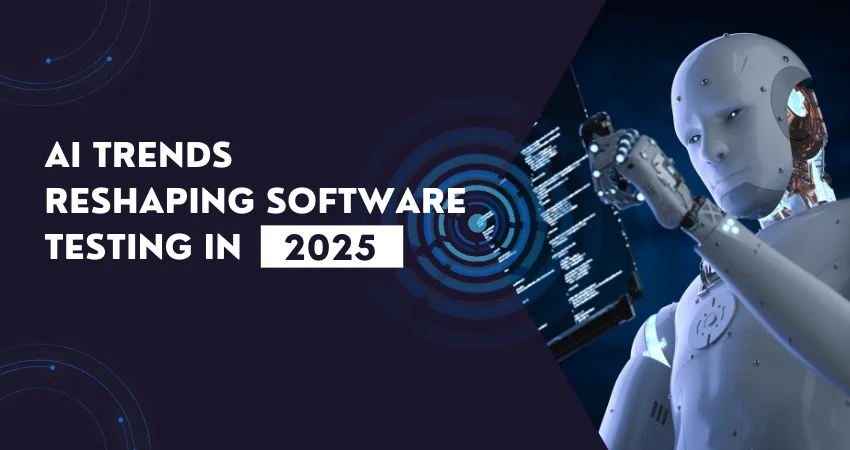AI Trends Reshaping Software Testing in 2025

As we move further into 2025, AI continues to transform industries at an unprecedented pace. Software testing and quality assurance are experiencing particularly dramatic shifts, with AI technologies becoming essential tools rather than optional advantages. The adoption rate of AI in software development is remarkable, with research showing that 80% of software teams are now using AI solutions. Organizations are seeing tangible benefits from their AI investments, including increased cost efficiency, shorter time to market, and improved quality. Let's explore five key trends that are reshaping how companies approach software testing.
Five Key AI Trends in Software Testing for 2025
1. AI Fears Will Turn into Excitement
For years, concerns about AI replacing jobs or being unreliable have dominated discussions. However, perspectives are shifting as organizations see real benefits. AI is now recognized as a tool that enhances productivity rather than replacing human expertise.
AI-powered testing tools are streamlining processes by identifying necessary test areas, generating test cases quickly, and simplifying test maintenance through self-healing capabilities. As enterprises witness cost savings, faster market delivery, and improved quality, the skepticism around AI is transforming into enthusiasm.
2. AI Will Significantly Reduce Test Execution Timelines
Generative AI is revolutionizing test creation by analyzing requirements and auto-generating detailed test cases within seconds. While this expands test suites, AI-driven quality intelligence helps manage them efficiently. By identifying high-risk areas and minimizing redundant tests, organizations can drastically cut test cycle times—sometimes by as much as 80%—and improve overall efficiency.
Shorter test execution timelines mean quicker software releases, reduced costs, and fewer errors in production, making AI a game-changer for software testing teams.
3. Developer Productivity and Output Will Skyrocket
The proliferation of AI copilots is expected to dramatically enhance developer productivity. These tools automate customized coded test steps and optimize existing test portfolios. Surveys indicate a high level of trust in AI tools among IT leaders, with significant improvements in testing efficiency and effectiveness anticipated. By automating routine tasks like bug fixes and code reviews, AI empowers developers to focus on more strategic initiatives.
4. AI Tools Will Become Increasingly Multimodal
Multimodal AI—technology that can simultaneously process multiple data types like text, images, audio, and video—is gaining traction in testing environments. These advanced tools are particularly valuable for testing scenarios requiring visual element analysis, user interaction understanding, and contextual information processing. UI testers, for example, can leverage multimodal AI to analyze interface screenshots alongside user interaction data for more comprehensive testing.
5. AI Agents Will Work Collaboratively Alongside Humans
One of the most exciting advancements in AI is the rise of agentic AI—autonomous agents can make decisions, plan actions, and solve problems independently with minimal human intervention. Major platforms like Salesforce and ServiceNow have already launched agentic AI solutions.
Predictors say that by 2028, 33% of enterprise software applications will include agentic AI, up from less than 1% in 2024. Software developers are expected to be early adopters as AI coding assistants mature and organizations seek to automate more testing tasks and workflows.
Agentic AI will help automate multiple SDLC steps based on context and objectives—writing and reviewing code, fixing bugs, and handling repetitive tasks. This automation frees developers to focus on business-critical activities. However, a crucial point remains: regardless of how autonomous AI becomes, human oversight will continue to be essential.
Looking Ahead
As AI becomes embedded in every aspect of software quality, from product development to customer experiences and business operations, organizations that effectively leverage these technologies will gain significant advantages. The trends we're seeing in early 2025 suggest that AI will continue to enhance and transform software testing practices for years to come.
For companies still hesitant to embrace AI, this year may mark the turning point when the technology becomes too valuable to ignore. As testing timelines shrink, developer productivity increases, and AI tools become more sophisticated, the question is no longer whether to adopt AI for software testing, but how quickly you can implement it to remain competitive.